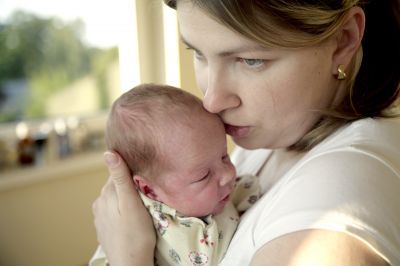Numerous studies have shown how the ‘love' and ‘bonding' hormone oxytocin affect women and their relationships with both men and children, but researchers have now discovered that the hormone also elucidates gender differences in parenting.
The study is published in the August Biological Psychiatry, Volume 68, Issue 4 print edition, according to a Biological Psychiatry announcement on August 20.
The researchers observed "160 first-time parents twice after the birth of their child, at 6 weeks and 6 months, by measuring each parent's oxytocin levels and monitoring and coding their parenting behavior."
And they concluded that "parent-specific styles of interaction" were related to increased oxytocin.
Specifically, moms were more loving described as "more gazing at the infant, expression of positive affect, and affectionate touch" whereas dads' hormone rised "with more stimulatory contact, encouragement of exploration, and direction of infant attention to objects."
Ruth Feldman, PhD, a professor of psychology at Bar-Ilan University in Israel and co-author of the study, added that these new findings "emphasize the importance of providing opportunities for father-infant interactions immediately after childbirth in order to trigger the neuro-hormonal system that underlies bond formation in humans."
"These differences may reflect the impact of culture-specific role expectations, but they also may be indicative of distinct circuit effects of oxytocin in the male and female brain," commented Dr. John Krystal, editor of Biological Psychiatry in an August 20 announcement.
Additionally researchers have discovered that low-oxytocin levels can make a man cheat and a mom can "release oxytocin" over the phone to help out a stressed-out child.
Full study, "Oxytocin and the Development of Parenting in Humans": http://www.biologicalpsychiatryjournal.com/article/S0006-3223%2810%2900120-4/abstract
Full study, "Social vocalizations can release oxytocin in humans" accessible via the online FirstCite edition of the journal Proceedings of the Royal Society B on May 12: http://rspb.royalsocietypublishing.org/content/firstcite
More on ‘pointing out a cheater' and oxytocin: http://www.independent.co.uk/life-style/health-and-families/pointing-out-a-cheater-1958947.html
Subscribe to Independent Premium to bookmark this article
Want to bookmark your favourite articles and stories to read or reference later? Start your Independent Premium subscription today.


Join our commenting forum
Join thought-provoking conversations, follow other Independent readers and see their replies